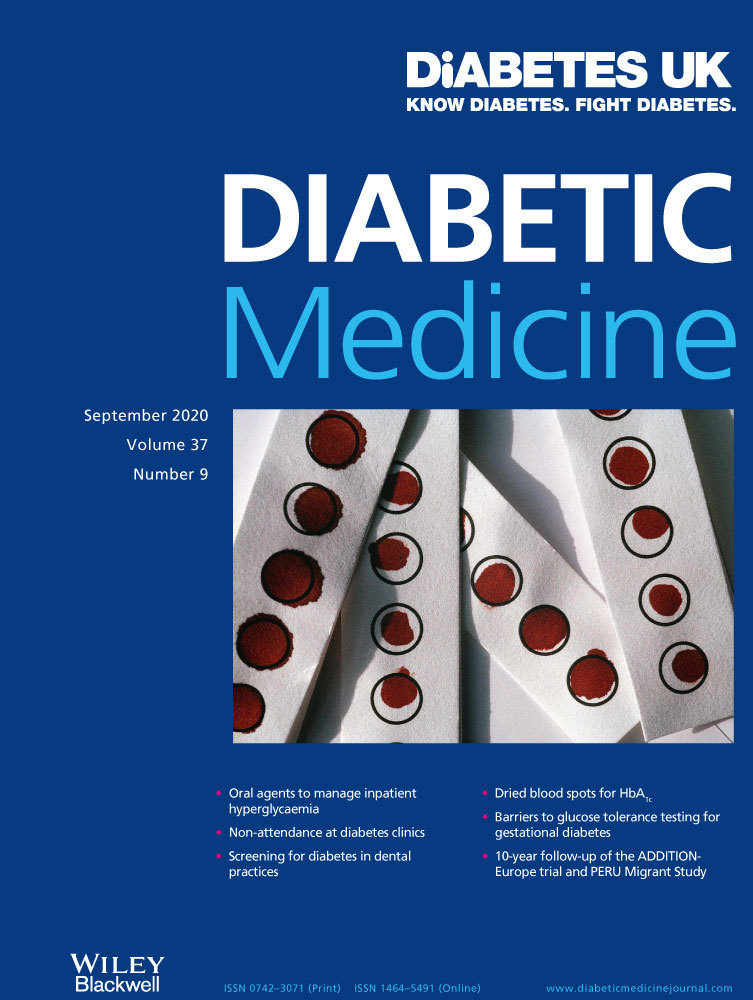Patient-reported outcomes after 10-year follow-up of intensive, multifactorial treatment in individuals with screen-detected type 2 diabetes: the ADDITION-Europe trial
Abstract
Aims
To present the longer-term impact of multifactorial treatment of type 2 diabetes on self-reported health status, diabetes-specific quality of life, and diabetes treatment satisfaction at 10-year follow up of the ADDITION-Europe trial.
Methods
The ADDITION-Europe trial enrolled 3057 individuals with screen-detected type 2 diabetes from four centres [Denmark, the UK (Cambridge and Leicester) and the Netherlands], between 2001 and 2006. Participants were randomized at general practice level to intensive treatment or to routine care . The trial ended in 2009 and a 10-year follow-up was performed at the end of 2014. We measured self-reported health status (36-item Short-Form Health Survey and EQ-5D), diabetes-specific quality of life (Audit of Diabetes-Dependent Quality of Life questionnaire), and diabetes treatment satisfaction (Diabetes Treatment Satisfaction Questionnaire) at different time points during the study period. A mixed-effects model was applied to estimate the effect of intensive treatment (intention-to-treat analyses) on patient-reported outcome measures for each centre. Centre-specific estimates were pooled using a fixed effects meta-analysis.
Results
There was no difference in patient-reported outcome measures between the routine care and intensive treatment arms in this 10-year follow-up study [EQ-5D: –0.01 (95% CI –0.03, 0.01); Physical Composite Score (36-item Short-Form Health Survey): –0.27 (95% CI –1.11, 0.57), Audit of Diabetes-Dependent Quality of Life questionnaire: –0.01 (95% CI –0.11, 0.10); and Diabetes Treatment Satisfaction Questionnaire: –0.20 (95% CI –0.70, 0.29)].
Conclusions
Intensive, multifactorial treatment of individuals with screen-detected type 2 diabetes did not affect self-reported health status, diabetes-specific quality of life, or diabetes treatment satisfaction at 10-year follow-up compared to routine care.




